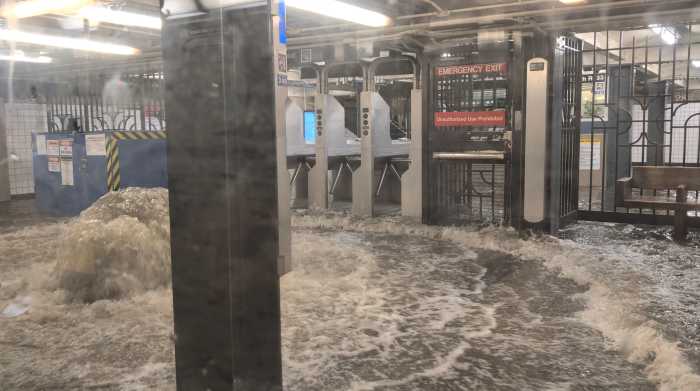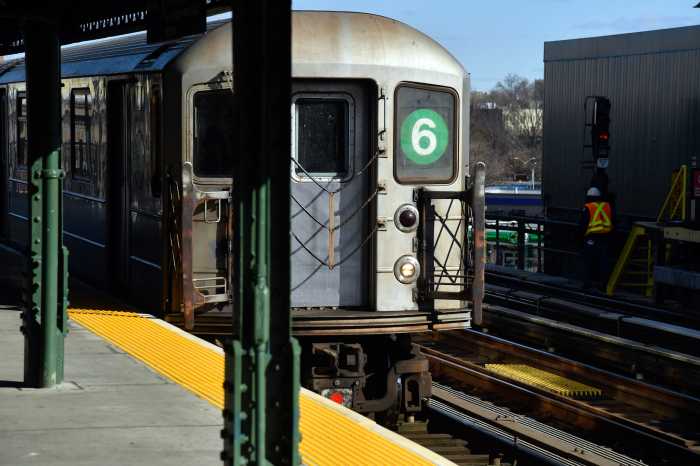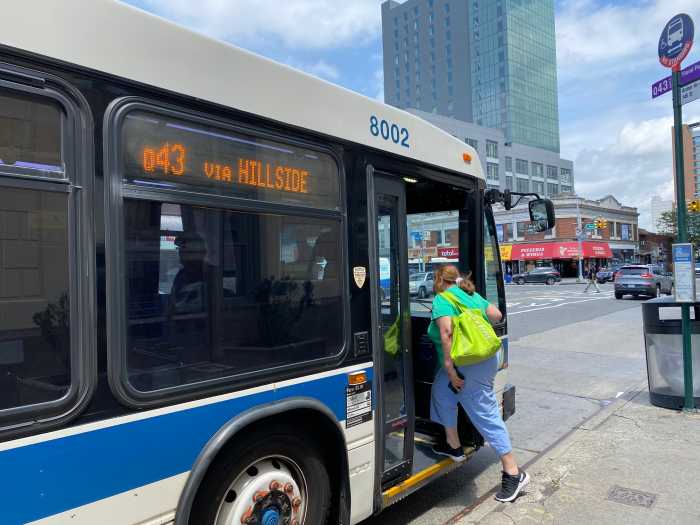Gov. Andrew Cuomo announced Thursday that he would declare a state of emergency for the beleaguered MTA to expedite improvements to its transit system.
Facing a subway derailment on Tuesday, as well as soaring delays and forthcoming Penn Station service interruptions during the “Summer of Hell,” Cuomo announced the news along with a package of strategies, increased funding for capital spending on infrastructure repairs and delivery of new equipment.
“The current state of decline is wholly unacceptable and we’re going to do something about it now,” Cuomo said, singling out failing subway service at a midtown conference. “We know the system is decaying rapidly … decades of underinvestment, deferred maintenance and deferred modernization have caused the problem.”
By signing an executive order to declare the state of emergency, Cuomo said it would allow the agency to more quickly process procurements for expensive projects, like the building of new subway cars.
“There will no longer be a tortured exercise to do business with the MTA,” said Cuomo, who runs the agency. “The MTA will tell you today it takes five years to get a new car. That is just ridiculous.”
After a review from the city’s Independent Budget Office highlighted steadily shrinking funding toward the MTA signal system — the ancient, frequently failing traffic lights of the subway — Cuomo pledged an extra billion in state money toward the $32.5 billion MTA capital plan. But the plan has been criticized for overly focusing on less critical projects favored by the governor. Cuomo did not detail where the new money would come from or on what specific projects it would be spent.
Tuesday’s derailment, which injured 39 people, sparked outrage among activists and riders, who rallied outside Cuomo’s Manhattan office on Wednesday night to demand that he take action. The MTA blamed human error for the derailment and suspended two maintenance track supervisors without pay after an unsecured, improperly stored scrap rail on the express tracks caused two cars of the eight-car train to leave the track.
Just hours before the governor’s announcement, a Long Island Rail Road train got stuck near the East River tunnels due to a “track condition,” crippling service with cancellations and delays, the MTA said.
“Now the governor will have to add details to his statement,” said John Raskin, executive director of the Riders Alliance, in an email. “How does a state of emergency fit into a comprehensive plan to fix public transit? Most importantly, when will riders begin to see improvements in their day-to-day commutes?”
Cuomo has ordered newly reappointed MTA chairman Joe Lhota to draft a “reorganization plan” for the agency within 30 days and conduct a review of the MTA’s five-year capital plan in 60 days to identify the most pressing needs.
Lhota said the efforts will help the MTA break through bureaucracy that’s bogging the agency down.
“Let’s live outside the box. Let’s come up with as many ideas that we can,” Lhota said. “Processes we have now are slow and inefficient.”
Queens State Sen. Michael Gianaris, who has introduced legislation that would institute a millionaires’ tax to fund the MTA, was skeptical about how far Cuomo’s plans would stretch.
“Today’s announcement by Governor Cuomo is an encouraging first step,” Gianaris said in a statement, “but significant questions remain regarding the source of this new capital funding and the continuing budget hole of several billions of dollars beyond the amount announced today.”
Board members have lamented over the need to reform the agency’s procurement process for new projects, which involves choosing companies that do business with the MTA, to make the procedure more efficient and transparent.
Veronica Vanterpool, an MTA board member and executive director at the Tri-State Transportation Campaign, stressed that expediting procurements can’t come at the sacrifice of transparency.
“There is lot of discussion about the need to reform the procurement process and I welcome the idea of expediting that process,” Vanterpool said. “But what we do not need is more opacity in the name of crisis.”





































